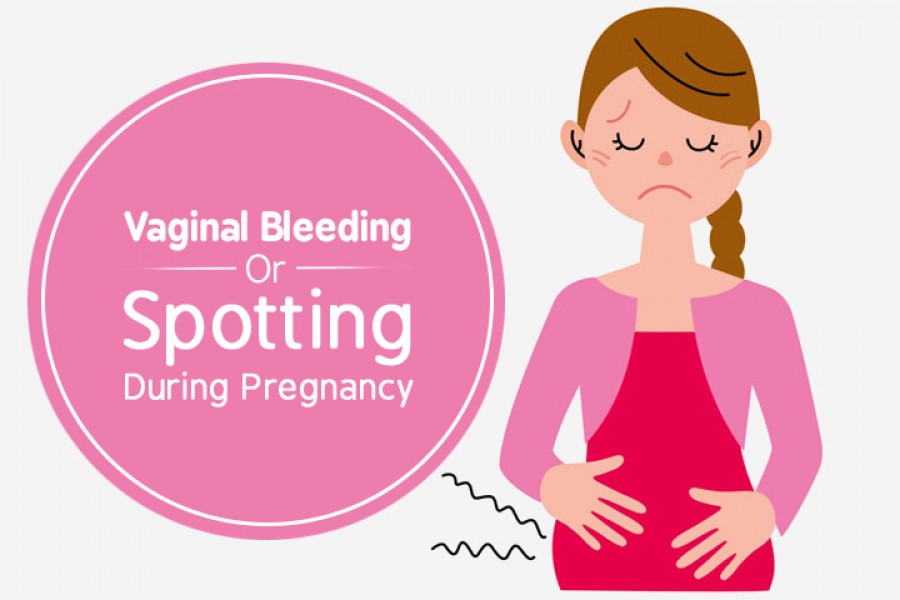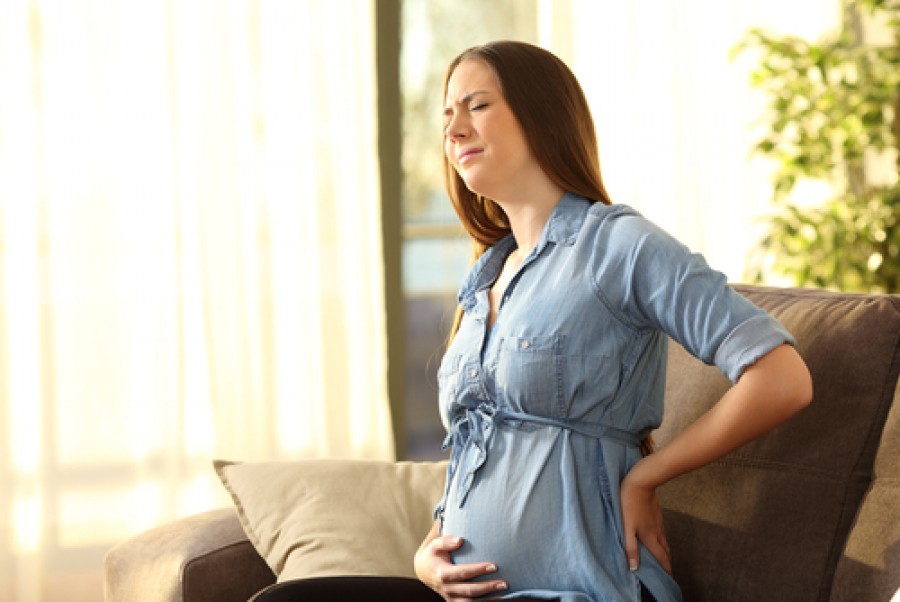Bleeding During Pregnancy: Here is what could be happening

First and foremost – don’t panic!
As a woman, you’ll know that some spotting and bleeding can occur during any time in your menstrual cycle and it’s no different during pregnancy.
It’s important to know that bleeding is not always an indication that something is wrong with your baby. There are many other, harmless causes of bleeding during pregnancy. It’s really important to be aware of your body, your overall health and to be able to differentiate between normal bleeding and bleeding that could indicate something more serious.
Many pregnant women report spotting or bleeding at different stages of their pregnancy. A few women even report the occurrence of bleeding throughout their pregnancy. It really does vary from woman to woman.
Common causes of Bleeding during Pregnancy
#1 Implantation Stage of Pregnancy
This refers to the very early stages of falling pregnant. Some light spotting or bleeding can occur when an egg is fertilized and becomes attached to the lining of the uterus. This might be due to your hormones having not caught up with the fact that you have a fertilised egg and you are actually pregnant!
What should you do?
At this stage, you probably won’t even know that you’re pregnant! You might even mistake the bleeding for a light period. There’s nothing to worry about.
#2 Breakthrough Bleeding
‘Breakthrough Bleeding’ refers to when your periods have not occurred for quite some time and finally do while you’re pregnant. This is a relatively normal occurrence, although it can seem scary especially if you’re pregnant! It normally subsides once your pregnancy hormones have risen to a certain level.
What should you do?
Have a chat with your doctor or midwife so they can double check that all is well with you and your baby. As mentioned, this is a pretty normal occurrence but it’s always good to get some peace of mind and keep those stress hormones down.
#3 Intercourse During Pregnancy
It’s perfectly safe to have intercourse during your pregnancy, in fact you might find that your pregnancy hormones encourage it! Just be mindful, especially during the later stages of your pregnancy as you don’t to put any pressure on the baby. Some women experience spotting or bleeding after intercourse during pregnancy.
What should you do?
Again, this is relatively normal but mention it to your midwife just in case – it’s always best to be safe and make sure they have full notes in case of any future complications. If you experience sharp pain or heavy bleeding, or bleeding that does not subside, seek medical attention immediately.
#4 Placental bleeding
The placenta is the tissue that helps to feed and nourish your baby while they are in the womb. Sometimes the placenta may get damaged or detach from its usual place, and this can lead to bleeding.
What should you do?
It would be difficult to tell if the bleeding is from the placenta exactly, but seek advice from your doctor or midwife immediately if you notice heavy bleeding or bleeding that does not subside.
#5 Uterine Fibroids
Fibroids are overgrown masses of tissue which sometimes develop in the uterus. Fibroids may or may not show any sign of their presence, but your doctor may pick up on them during your scans. They are usually not anything to worry about but sometimes during pregnancy they may tear, which can cause bleeding.
What should you do?
Hopefully your doctor will be able to make you aware of any particularly large fibroids, but if you experience any sharp pain, regular spotting or bleeding make sure you speak to your doctor or midwife so they can further examine you and make sure everything is ok.
#6 Ectopic Pregnancy
An ectopic pregnancy occurs when a fertilised egg attaches itself and begins to develop in one of the fallopian tubes, instead of the uterus. This can cause a lot of pain and internal bleeding as the baby grows and there is no room for it. Many women will experience a miscarriage from this type of pregnancy, or their doctor may recommend a termination to prevent further complications or health risks to you and future pregnancies.
What should you do?
If you experience sharp pain and bleeding, speak to your doctor or midwife immediately. A scan will be able to tell you where the baby is developing and your doctor will discuss with you what this means for your pregnancy.
Read more about ectopic pregnancy here.
#7 Miscarriage
Unfortunately miscarriages are still a factor of pregnancy. Sometimes women will lose their baby, and there is no known reason for it. Sometimes this happens during the very early stages, and sometimes it can happen later on in pregnancy. If you are experiencing a miscarriage you will likely experience heavy bleeding and abdominal pain.
What should you do?
If you suspect you might be having a miscarriage, seek medical attention immediately.
The healthiest thing you can do for yourself during your pregnancy is to ensure you keep your stress levels to an absolute minimum. If you are experiencing spotting or bleeding at any time during your pregnancy, don’t suffer in silence.
Speak to your doctor or midwife as soon as possible. It will probably be the case that everything is completely fine – but nothing is more valuable than peace of mind for a soon-to-be mum.



